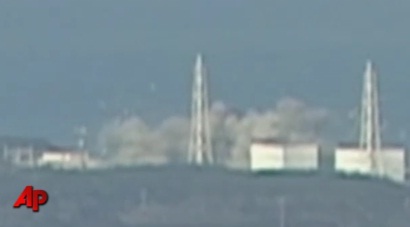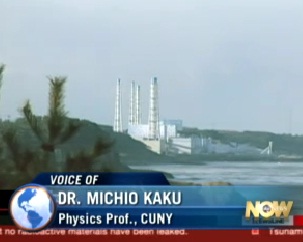Meltdown is Near as Third Explosion Rocks Sendai Plant
 Monday, March 14, 2011 at 10:38PM
Monday, March 14, 2011 at 10:38PM Radiation is spewing from damaged reactors at a crippled nuclear power plant in tsunami-ravaged northeastern Japan in a dramatic escalation of the four-day-old catastrophe.
Japan's prime minister Naoto Kan has warned residents to stay inside or risk getting radiation sickness following a fire at the at the number-four reactor at the quake-hit Fukushima No.1 atomic power plant.
A government spokesman said radiation emanating from the plant is high enough in nearby areas to damage health.
Radiation levels have risen considerably, Japanese Prime Minister Naoto Kan said.
In a televisised press conference this afternoon, Kan told people within 30 kilometres of the troubled nuclear power plant to stay indoors. Another evacuation may have to take place.
Japanese officials who have said for sometime that the problem was contained are now changing their tone a little.
Workers were earlier evacuated from the number-two reactor plant.
'‘We have moved our staff to a safer area,’’ the TEPCO spokesman said this morning.
An official from Japan’s Nuclear and Industrial Safety Agency said ‘‘that workers near the reactor No.2, excluding those who are pumping water to cool the reactor, have been evacuated.’’

 Japan earthquake,
Japan earthquake,  emergency,
emergency,  evacuation,
evacuation,  fukushima,
fukushima,  nuclear meltdown in
nuclear meltdown in  Japan,
Japan,  News,
News,  People,
People,  Travel
Travel 

